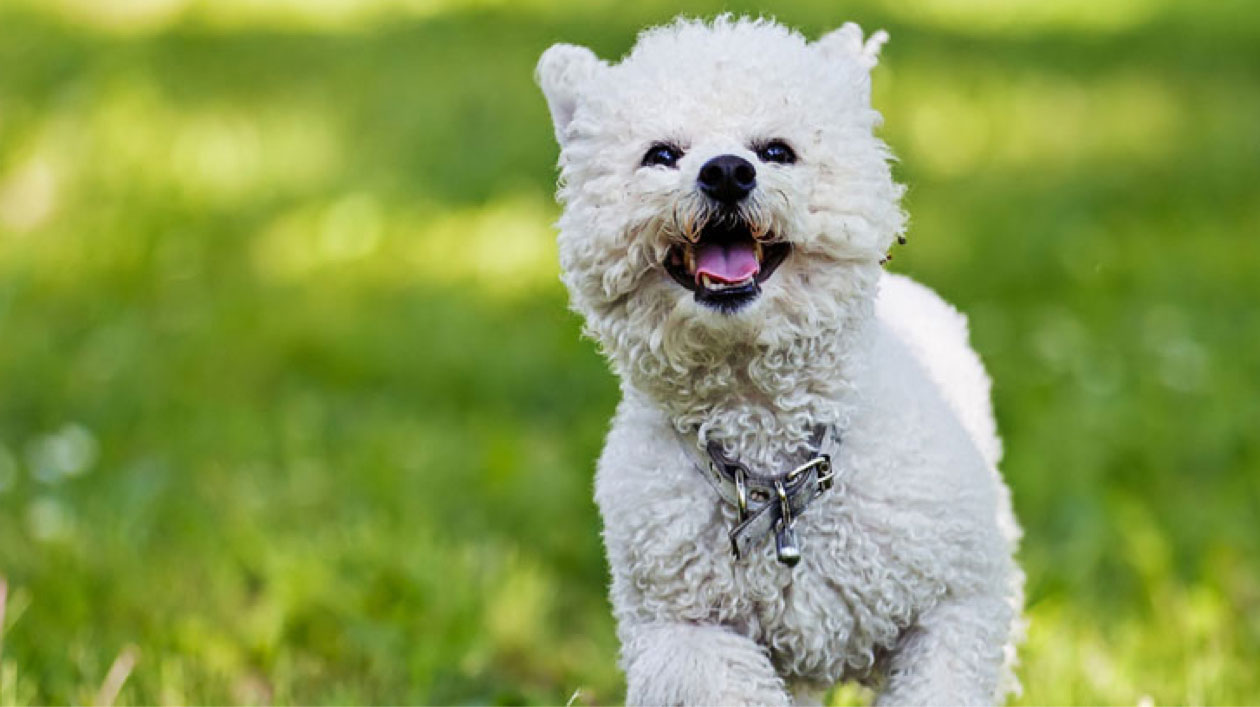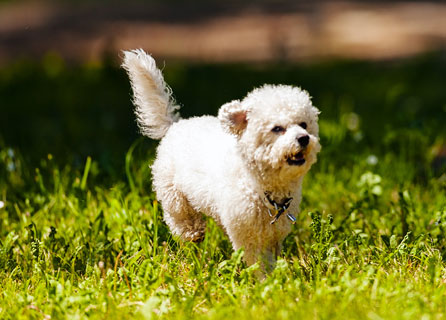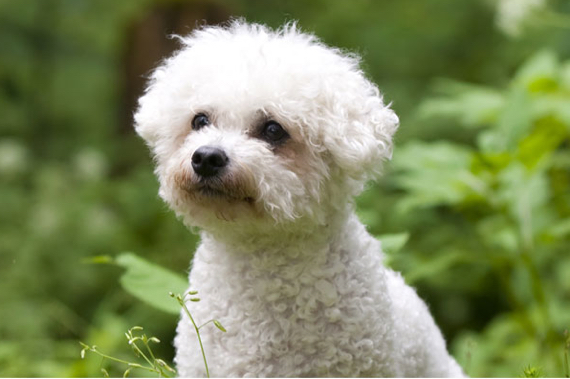
Bichon Frise breed guide
Happy and energetic, while forever loyal to their family. Bichon Frises are small and friendly, with a natural talent for learning tricks. Find out more about these peppy, pint-sized dogs, from their temperament and how they should be groomed, to their health and exercise needs.
Breed information and advice
With a friendly, affectionate nature, fluffy white hair and petite stature, the Bichon Frise makes a wonderful family pet. As part of the toy breed group, they're well-suited to apartment living, but still need plenty of exercise and playtime. Here's more you should know:
- This dog loves company and needs to be in homes where there is usually someone around.This dog loves company and needs to be in homes where there is usually someone around.
- Unlike some long-haired breeds, Bichons will shed very little, making them an ideal pet for people with allergies.Unlike some long-haired breeds, Bichons will shed very little, making them an ideal pet for people with allergies.
- On average, they'll weigh between 3kg and 5kg, when fully grown.On average, they'll weigh between 3kg and 5kg, when fully grown.
- A healthy Bichon Frise will usually live for over 12 years.A healthy Bichon Frise will usually live for over 12 years.
Typical size of a Bichon Frise: Small: 23cm-28cm

Recommended exercise and nutrition
Despite being small dogs, Bichons Frises are energetic little characters, so will still need at least half an hour of exercise per day. Taking your puppy for regular walks will help socialise them so they're more settled around strangers and unusual noises.
Bichon Frise puppies grow quickly and reach adulthood in less than a year, so they need to be fed at least four times a day. Once they reach maturity this can be reduced to once or twice a day. The amount you feed them will depend on their age, size and activity levels, and always remember to read the packet.
At least half an hour of exercise per day
A cheerful, playful dog that loves company and exercise, your Bichon Frise will also enjoy the stimulation and attention that comes with agility training.

Common health problems and illnesses
Bichon Frises are generally healthy dogs but they’ll need regular check-ups and vaccinations to stay in good shape. There are some conditions that this breed may be more prone to, and it’s worth being aware of the main symptoms, so you know what to watch out for.
A portosystemic shunt is a vessel that should close at birth but allows blood from the intestines to pass to the main circulation, bypassing the liver and resulting in a build-up of toxins, leading to illness. If your vet suspects that your Bichon Frise has a portosystemic shunt, a full diagnostic work-up is advised.
Type 1 diabetes is a risk for Bichons Frises, especially in older female dogs that haven’t been spayed, or dogs that are overweight or taking steroid medication. Symptoms include weakness, lethargy, excess thirst or urination and an increased appetite without putting on weight. It’s easily controlled with medication if treated quickly.
A common injury affecting this breed is a dislocated kneecap, also known as a luxating patella. This is a condition that they’ll have been born with, and signs to look out for include occasional skipping or hind-leg lameness. Simple surgery is usually the best way to treat this condition, but your vet can advise on the best course of action.
The Bichon Frise breed is more prone to this condition, which causes the overproduction of cortisol, and can affect the organs. Common signs of Cushing’s disease include hair loss, a swollen tummy and an increased appetite. While this condition isn’t curable, it can be managed with oral medication.
This breed may experience dermatitis and irritable skin conditions which can be brought on by contact with chemicals or pollen for example, or by food allergies and flea bites. Watch out to see if they're excessively licking their paws, or repeatedly scratching and rubbing their face. Your vet will be able to prescribe medicated treatments to soothe the more common conditions.
Find out about insurance for your Bichon Frise
Learn how pet insurance works and what kind of cover you might need for your dog.
Grooming advice
Regular daily brushing and a bath every 6-8 weeks will keep your dog’s snowy white coat looking its best. They'll love the attention and it will be a great bonding experience for you both.
Although your Bichon's curly white coat doesn’t fully develop until they're about one year old, it’s a good idea to still brush them daily so they get used to the routine. Training them to sit still while grooming will make both of your lives easier in the long run, and means you can pay attention so their coat is free of matting and skin infections. Once they've matured, you may also want to take them to be professionally groomed every few months.
Every few weeks you should trim their nails to prevent them from cracking or splitting, clean their ears of dirt or debris, and brush their teeth regularly.
Fun and interesting facts
- Bichons Frises soared in popularity thanks to a starring role for Snowy in Hergé’s Adventures of Tintin.
- The name Bichon Frise comes from the French for curly-haired dog, and the breed is also sometimes referred to as the ‘Tenerife Dog’ due to its alleged Canary Islands origins.
- The Spanish painter Goya featured Bichons in several of his famous artworks.
- This dog breed may well have disappeared over the centuries if it hadn’t been for their ability to learn tricks that kept them popular and busy with circuses and organ grinders.
Important information
The content on this page aims to offer an informative introduction to pet breeds, but does not constitute expert veterinary advice. If your dog or cat falls ill or has an injury, contact your vet immediately.
All facts and figures were correct at date of publication and were compiled using a range of sources.
Discover more breeds
Browse our other cat and dog guides to learn about some of the UK’s most popular breeds.